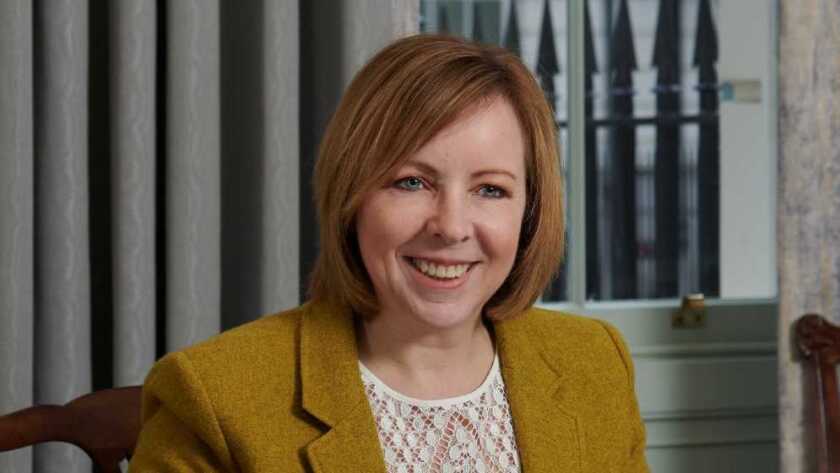Accountability for diversity and inclusion has grown and in the tech sector in particular, its level of importance generally fluctuates from time to time. Allkins recalls that the first 15 years of her career were spent in smaller companies, privately owned and mostly UK- based, where she had many female bosses around.
The latter of those 15 years were spent in the US, in high-tech, software organisations; a transition made possible through an acquisition.
“One of the companies that I worked for got acquired by a US company, and that was the beginning of my journey into the US corporate world. I have always been running the technical support organisations, and they just progressed, as they got bigger, more complex and more diverse as I moved from role to role. The last role that I had for the last four years was with Microsoft, which then transitioned into why I set up my own consultancy,” she adds.
She located to Seattle to be based at Microsoft’s head office, which she describes as a “huge responsibility”, with nearly 25,000 people supporting every single Microsoft product from Xbox to enterprise clouds like Azure and Dynamics and Microsoft Office.
Prior to Microsoft, Allkins was at HP for several years within the enterprise software business. She also ran the technical support organisation on a global basis in addition to running the support sales business — along with its US$2 billion revenue stream.
Where did you go after Microsoft?
“I had achieved a lot at Microsoft and felt that I had reached a point where I knew that after having done this for so many years with so many companies, there are bits of the job that you love, and there are bits of the jobs that you do not love. I was, and am in a fortunate position, where I can choose to focus on just the things I like doing now,” says Allkins.
“Those things are all around the frontline people who are very often unintentionally undervalued and not always recognised regarding the impact they have on your customers and your business outcome. I came back to the UK and set up my consultancy business. I would love to be able to affect multiple companies a year, rather than just one.”
Building a company from the ground up, twice, could not have come without some challenges, however, Allkins took a different approach each time.
“The first time I was entirely naïve - I had three months’ money in the bank account, two young children and a husband who was a house-husband.
“I was very naïve in thinking that I would just get so much business but I was very lucky that I did. This time around, I am not so naïve and have much more money in the bank. The second thing this time around is that I am so much more established from a networking point of view and a personal profile.”
Diversity
A recent study by McKinsey suggests that a diverse executive leadership team correlates to greater profitability. The 2019 results indicate that companies in the top quartile for gender diversity on executive teams were 25% more likely to have above-average profitability than companies in the fourth quartile.
“Everybody believes they know why diversity is important — representing your customers when you’ve got global diverse customers and diversity of thought — you’ve got to have different people to bring different experiences and different ideas and thoughts into the business,” she explains.
“I had a conversation with a US company about how much businesses really believe in the value of diversity versus how much companies are saying that they are focusing on it because they have to be seen to be focusing on that.
“We did a vote in the Zoom call, which had about 40 people and nearly 70% of them felt that companies, including theirs, seems to be paying lip service to it.”
Allkins says that when she thinks of all the companies she has worked for, there has always been a D&I need — the leadership team has always been very vocal about diversity but questions why the needle never moves.
Upon reflection, she says that if the needle does move, it is a tiny fraction and nothing material ever happens.
“I would equate it to customer experience. I don’t think that you would ever find a CEO who says ‘I don’t care about diversity’ or they wouldn’t say it publicly, and nor would you ever find one saying they don’t care about customers,” she mentions.
“But do they really believe in diversity enough for that to be the underlying principles in how they run the business? I just don’t think enough do, otherwise the needles would be getting moved more. I love the fact that in places like California, you now have to have a female on the board, and there’s a Scandinavian country that insists the same.
“At Microsoft, when I had suppliers come and do business with me, before I met them, the first thing I would do was go to their websites and look at their leadership page. I would challenge them and ask ‘how come your entire board and senior leaders look the same?’ And I would say to them, ‘the reason that I’m asking that is how can you represent my customer base? How can you represent my organisation when you don’t have a leadership team that reflects that?’ And it completely throws them. Unless you start to hold companies accountable, I do not know how it will change.”
She explains that companies will report their D&I numbers and it will be on every agenda and in every major meeting. Then the next meeting, compliance will be labelled as the number one priority. Then the next thing will be that data privacy is the number one priority.
“If you count over the course of a year, you would have been told a dozen things are the number one priority. The number one priority, unfortunately changes depending on what is happening in the world, or what scandal has just occurred. They are all important, so it is a challenge.
“With what is happening in the US, now we have companies revisiting their past. It did not bother them six months ago, but it bothers them now because something has happened to trigger that,” Allkins shares.
Digitalisation expectation
Digital transformation is accelerating and companies that were dragging their heels — even if only due to internal cost pressures — are now realising they have to accelerate.
“The technology for the call centres and the way to digitally transform them has been available for a long time. AI and machine learning is not new, but what has been lacking is visionary leaders who can imagine and visualise how to apply that technology in ways that can deliver amazing customer experiences,” Allkins says.
“Some of them are really stepping up and starting to do a great job, and others are just doing an appalling job. There are so many technology companies out there that have got technology to enable but I think what companies have got to be very careful about, is remembering that the human experience is still a necessity.
“We love when things work well with technology, and we love it when we can self-serve if it works, but the second it doesn’t we want a human being, and we want to get to them quickly. We also want that human being to be equipped and enabled to help us, and sadly, quite often they are not.
“What is happening now is because many companies are stepping up as a customer or a consumer, regardless of industry, we are starting to experience good things, and then when we go somewhere else and we experienced something not so good, we know that it can be better than what we are receiving.”









